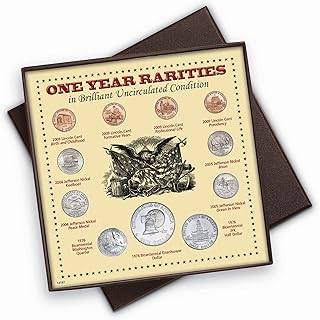Managing a coin collection responsibly involves more than just obtaining and admiring coins; it also requires meticulous documentation and organization. Accurate cataloging of your coin collection not only simplifies the process of selling and keeping track of your assets but also equips you with the necessary information to make strategic investment decisions.
Managing a coin collection responsibly involves more than just obtaining and admiring coins; it also requires meticulous documentation and organization. Accurate cataloging of your coin collection not only simplifies the process of selling and keeping track of your assets but also equips you with the necessary information to make strategic investment decisions.
Getting Started with Coin Cataloging
For individuals who are just beginning to dip their toes into the world of numismatics, their collection may be modest, perhaps encompassing only a handful of pieces. As you delve deeper into the hobby, buying and selling become more frequent, and your assortment grows in both size and value. The role of systematic cataloging becomes prominent. It is vital to store detailed records about each piece in your collection—they entail the nation of minting, year of issue, mint marks, series it belongs to, its grade, and whether a third-party grading service has assessed it. Capturing the specifics, like how many of what kind you possess and the dates of acquisition, enables you to monitor fluctuations in market value over time.
Cataloging is more than just a benefit for the collector; it's a gift of knowledge to those who might inherit the collection. By maintaining a catalog, you ensure that your heirs will have a clear understanding of the collection’s composition and worth.
Choosing Your Cataloging Approach
When it comes to documenting your collection, the size and complexity of your inventory will guide the choice of tools you deploy. A traditional approach using a notebook or index cards may be adequate for smaller collections. On the other hand, large and varied assortments may be more manageable with the assistance of a spreadsheet or proprietary coin collecting software. Free resources like the NGC Registry or PCGS Set Registry can be useful starting points, while advanced collectors might find the investment in paid tools such as CoinManage or Collector's Assistant by Carlisle Development worthwhile. Regardless of the selected method, safeguarding a backup copy of the collection database is a prudent measure to prevent loss from accidental damage or data corruption.
Benefits Beyond the Basics
Organization is not the only reward of a well-cataloged coin collection. This practice plays a pivotal role in identifying gaps and potential enhancements within your collection. It also serves as indispensable documentation for insurance purposes, offering an established record that can be easily shared with your insurance provider.
Moreover, an up-to-date catalog can be advantageous when it comes to evaluating and managing your investment in numismatics. Establishments like Atlanta Gold & Coin Buyers can provide professional appraisal services and insights into buying and selling rare coins. Benefiting coin enthusiasts with physical locations and online services, their expertise ensures fair and transparent transactions.
Embracing the Habit of Cataloging
In crafting a meticulous catalog of your coins, you are not just organizing; you are preserving their heritage and ensuring their continuity for the future—an act of stewardship for every ardent coin collector. A methodically built catalog defends your collection’s historical significance and monetary value.
Cataloging is a key strategy for successful coin collecting, with advantages that reverberate beyond simple record-keeping. It's a tool for exploring growth opportunities within your collection, and necessary documentation for safeguarding its worth. As you arrange your numismatic treasures, let your collection grow and flourish in an orderly, well-documented fashion. Select a cataloging system that aligns with the scale and diversity of your collection, and be sure to back up your information securely.
In summary, proper organization and cataloging of your coin collection render numerous benefits and peace of mind. As you embark on this essential task, remember the significance of a well-maintained catalog—it is the heartbeat of a coin collection, pulsing with the life of each coin's story, their accumulated value, and the potential for future growth.
Information for this article was gathered from the following source.




